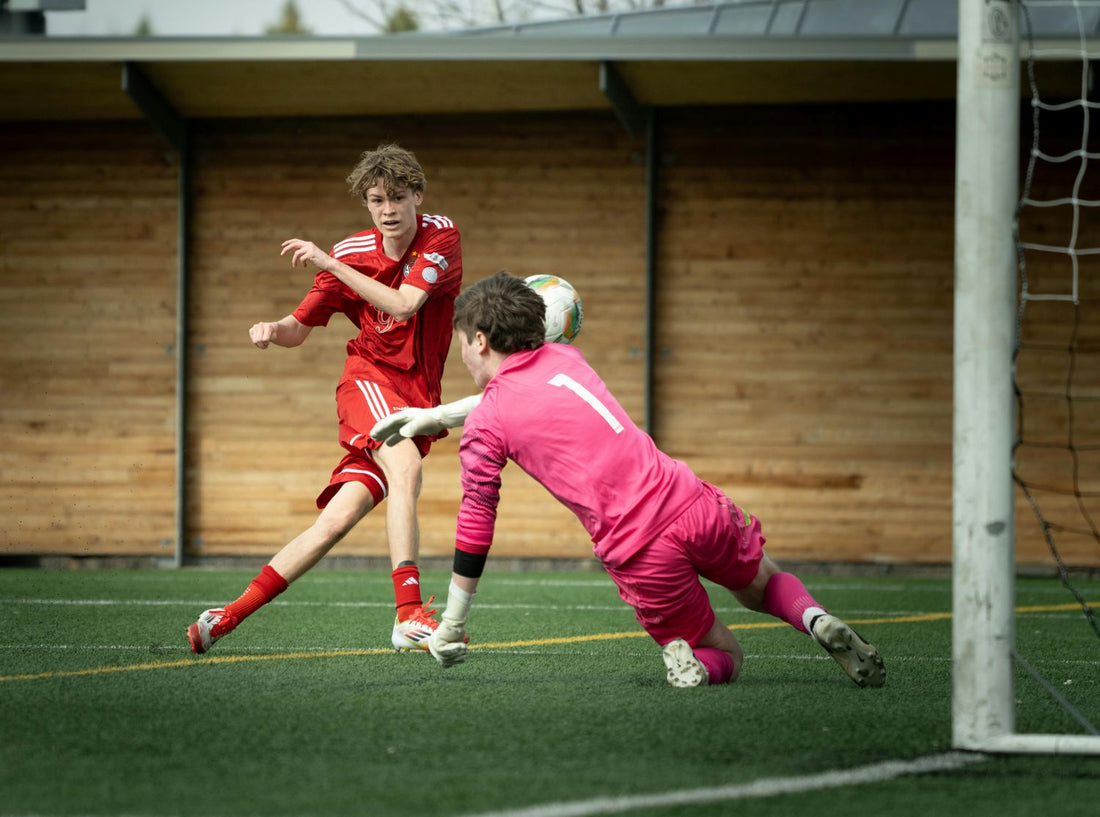As you may already know, this year’s US Club Soccer National Championships are set against the stunning backdrop of Denver, Colorado — a city sitting over 5,000 feet above sea level! If you’re heading to the championship (or to any competition at high elevation), you might hear people say, “Watch out for the altitude!” But what does that really mean for you as a player?
Why Elevation Matters
Playing at elevation can leave even the fittest athletes feeling off — shortness of breath, quicker fatigue, and slower recovery. That’s because the higher you go, the thinner the air gets, meaning there’s less oxygen in each breath you take, and consequently, less oxygen available for your muscles when you’re working hard. For soccer players, this can show up as:
- Feeling out of breath faster - You might feel winded after shorter sprints or notice your legs getting heavier sooner.
- Higher heart rate — Even at a slower pace, your heart works harder to pump oxygen through your body.
- Muscle fatigue – Your muscles get tired faster.
- Longer recovery — You may need more time to bounce back between bursts of effort.
It’s not just physical. Some athletes also experience mild headaches, dizziness, or trouble sleeping when adjusting to altitude — all of which can impact focus and energy on the field.
How Players Can Prepare
While you can’t magically make the oxygen level rise, you can help your body adapt and reduce the effects of elevation. Here’s how:
- Hydrate, hydrate, hydrate
Higher elevation leads to faster dehydration, even if you don’t feel like you’re sweating much. Start hydrating days before arriving and continue drinking water consistently — not just at practice or during games.
- Plan your arrival time smartly
See below!
- Ease into it
Avoid hard training sessions the first day you arrive. Let your body acclimate gradually. Light movement, stretching, and a short walk can help without pushing you into exhaustion.
- Fuel your body well
Focus on balanced meals with carbs, protein, and healthy fats. Carbohydrates, in particular, help your muscles use oxygen more efficiently.
- Pace yourself
Don’t go all-out in the first few minutes, especially if you’re noticing the effects of elevation. Save energy for critical moments and rely on smart positioning and teamwork instead of constant sprinting.
When Should You Arrive?
Believe it or not, when you arrive makes a big difference in how well you handle altitude. To help minimize its effects on performance, most sports medicine experts suggest one of two approaches:
- Arrive very close to competition - ideally within 24 hours of playing. This limits the time your body has to notice and respond to the altitude stress (like dehydration, elevated heart rate, and shortness of breath).
- Or arrive early, 7-10 days in advance - this gives your body time to start adapting to the thinner air, increasing red blood cell production and improving oxygen use.
The “worst window” is typically arriving 2–3 days before competition, when symptoms like fatigue and headaches are often strongest but your body hasn’t yet adjusted.
Mental Preparation Matters Too
Elevation challenges aren’t just physical; they can mess with your confidence. If you feel tired faster than usual, remind yourself: this is normal, and it’s affecting everyone, not just you. Focus on smart plays, quick recovery, and staying positive.
As parents, you can support by keeping encouragement high, watching for signs of exhaustion, and helping players stay fueled, hydrated, and rested between matches.
Final Takeaway
Playing at elevation adds an extra layer of challenge, but it’s also an opportunity to build resilience and adaptability. With the right preparation, you and your team can turn this into a competitive edge.
Good luck to all the athletes heading to the US Club Soccer National Championships — play smart, stay strong, and embrace the adventure!
Ready to take your training to the next level and stay ahead of the game? Don't let your fitness journey plateau! Head over to our website to dive deeper into our blog for more expert tips and explore our range of training E-Books. Make sure to follow us on Instagram and Facebook.
Want to be the first to know about the exciting launch of our revolutionary HEROS Training System and upcoming physical products from ACTOS? Sign up for our newsletter today to get all the updates delivered straight to your inbox.
We value your input! If you have any questions, specific training requests, or recommendations for future blog topics, please don't hesitate to reach out. We're here to support your fitness goals every step of the way. Remember that more is not always better; better is always better!
Jessica
ACTOS Performance Innovation
Jessica holds a B.S. in Kinesiology and an MPH, with a strong background in health and wellness. She’s worked as a personal trainer, bootcamp instructor, as well as a Health & Fitness Director, leading large-scale wellness programs. As the former owner of a successful personal training business, she also partnered with local gyms and the military MWR Department to deliver customized fitness solutions.

